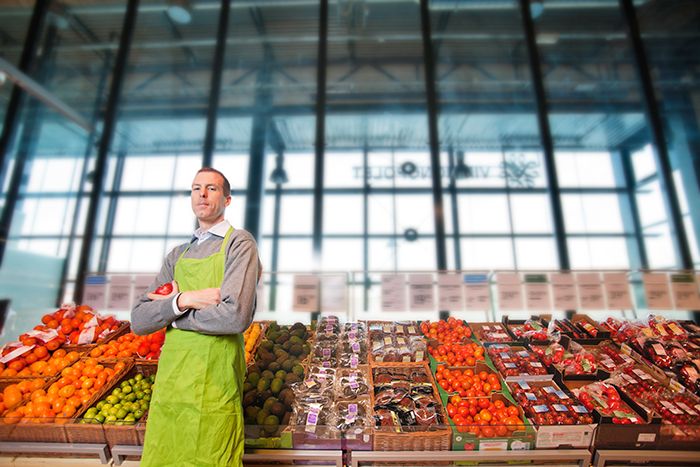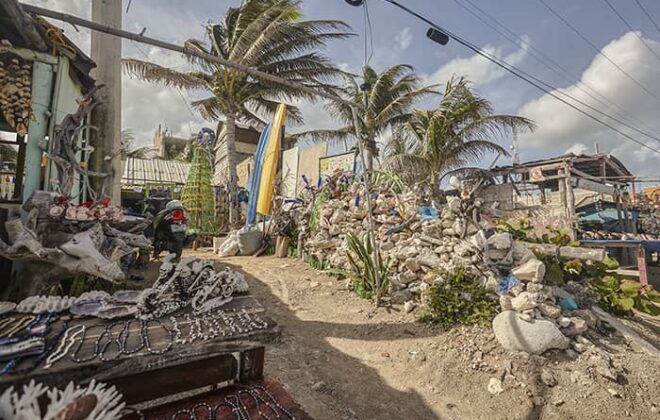Grocery store essential workers demanding $2 increase
LOS ANGELES, CA — Grocery and drug store workers are calling on Albertsons, Vons Grocery, and Rite Aid to maintain a $2 per hour pay increase for essential workers during the pandemic as the number of cases and deaths due to the virus rise statewide.
Los Angeles County pushed past 100,000 coronavirus cases Monday as the number of daily new cases more than doubled from just two weeks ago. An estimated 1 of every 140 people in Los Angeles is infectious, officials said.
Throughout the pandemic, essential workers were receiving “hazard” or “hero” pay, often a $2 per hour increase that companies gave employees during the health crisis and ongoing stay-at-home orders. That increased pay stopped in early June, but the pandemic didn’t.
Workers want the pay to remain, and one worker on the Westside told news outlets it makes a huge difference.
“I’m talking to people and dealing with raw meat,” Trev, who works at a Westside location, told news outlets. “I’m sanitizing everything that I can, but the fact that they want to take it away from us is mind-boggling.”
Trev declined to give his last name for privacy reasons and shared why he believes workers need this additional pay.
“If you’re going to put us in harm’s way, then there should definitely be some recognition to the work,” Trev told the news outlets. “They want to give us this little bonus, for one week. ‘No dude, I was there every day doing 60 to 65 hour weeks just to make sure everything was on the shelf.'”
Between the pandemic and people panic-shopping for items such as toilet paper and chicken, and then stores closing early on the Westside during curfew — the city of Los Angeles and Santa Monica had major damage on May 31 and June 1 from looting across the county — it’s been challenging to be an essential worker.
For several days in early June, workers left home for work but then had to find a plan and adapt as the county and local cities, including Santa Monica and Culver City, were determining citywide curfews and local states of emergencies midday. Some curfew times were announced and enforced before 3 p.m.
“It ate my wallet up,” Trev said. “I had to Uber. Getting out of the city of Santa Monica, in the middle of the curfew, the store would close at 3, and we had to get our employees out. It was tough because there were no buses.”
“It was just such a bummer,” Trev said. “And there’s no way I can get paid back for that.”
“Multiple employees during that week were frantic, looking around asking, ‘How am I going to get home?’ Some employees have carpooled,” he said.
“Meat clerks, you’re the one people are going to go to,” Trev told the news outlets. “You’re doing everything you can to make sure it’s sanitized, safe and stocked — and they want to take it from us, and that’s not cool.”
Store management has been helpful and provided protective gear, he added.
“Throughout the whole time I felt safe, we were provided enough materials and masks and everything else, but it was something to see everybody go crazy,” Trev said.
“I’m grateful for what they’ve done, but I wish we could be paid more.”
There’s a real risk for essential workers on the front lines of the pandemic.
More than 3 million people are essential workers in grocery stores, according to The Washington Post.
In April, more than 1,500 grocery workers throughout the country tested positive for the coronavirus, according to the United Food and Commercial Workers International Union.
There have been at least 72 reported worker deaths and more than 5,000 workers impacted by the pandemic, according to a report by the union released in May.
Several grocery workers in Los Angeles County have died from the coronavirus, according to several supermarket chains, including Whole Foods and Ralphs.
A Ralphs employee in Culver City and another in Sherman Oaks were hospitalized and died from COVID-19 in May, union officials told news outlets.
A Pasadena Whole Foods employee died from COVID-19 in May.




